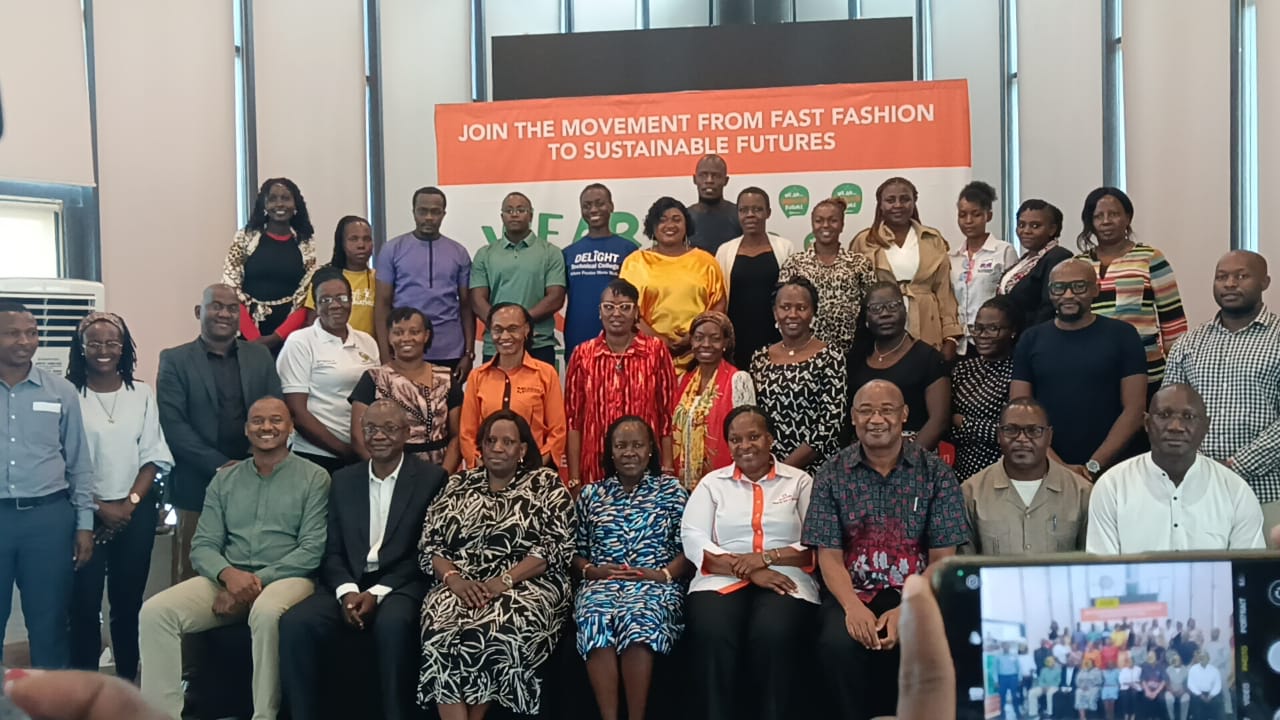The State Department for Technical and Vocational Education and Training (TVET), in collaboration with Edukans Kenya, has unveiled a bold plan to integrate green skills into the national training curriculum. The initiative aims to equip young people with knowledge and practices that will drive Kenya toward a more sustainable and circular economy.
Speaking at the closing ceremony of the Green Future Master Trainers Workshop in Mombasa, TVET Principal Secretary Dr. Esther Muoria emphasized the government’s commitment to embedding sustainability into all areas of training.
“In the past, we only mainstreamed bits of greening into the curriculum, but this is not enough. With partners like Edukans, we are ensuring that sustainability is fully integrated—whether in textiles, mechanical, building, or civil works,” she said.
Dr. Muoria noted that Kenya has learned expensive lessons from neglecting the environment, pointing to the billions of shillings now being spent to clean up the Nairobi River.
“If we had embraced greening earlier, our environment would be in a better state. Going forward, we will green every level of training—TVETs, universities, and even basic education—so that our young people become champions of sustainability,” she added.
Edukans Kenya, through its Green Future Project, is focusing on the textile industry—one of the world’s most polluting sectors after oil, gas, and plastics.
Mary Mugo, Country Director of Edukans Kenya, said the project is designed to equip young people with practical green skills that can transform the fashion and textile sector.

Mugo added that Edukans is also partnering with the Kenya Association of Manufacturers (KAM), the Export Processing Zones (EPZs), and over 100 SMEs to promote circular practices. This includes teaching industries and small businesses how to reuse, recycle, and repurpose textile waste, while also preparing them to absorb green-skilled graduates.
“We are not just working on curriculum change; we are ensuring the industry is ready to embrace sustainability and create green jobs for youth,” she said.
The Mombasa workshop brought together TVET trainers, university representatives, and county officials. The goal was to empower trainers to deliver a green curriculum that emphasizes waste reduction, recycling, and sustainable production practices.

Dr. Muoria affirmed that this is only the beginning.
“Every training area will be greened. As we prepare our young people for the job market, we must also prepare them to safeguard our environment for the future,” she said.
The Green Skills Curriculum aligns with Kenya’s commitment to the United Nations Sustainable Development Goals (SDGs) and the country’s broader vision of building a resilient, environmentally conscious workforce.
By starting with the textile sector, responsible for significant global waste, the initiative seeks to inspire a cultural shift toward sustainability that will eventually spread across all industries.


































